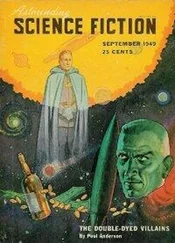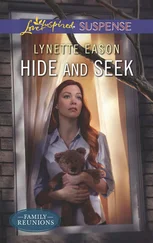Уилки Коллинз - Hide and Seek
Здесь есть возможность читать онлайн «Уилки Коллинз - Hide and Seek» весь текст электронной книги совершенно бесплатно (целиком полную версию без сокращений). В некоторых случаях можно слушать аудио, скачать через торрент в формате fb2 и присутствует краткое содержание. Год выпуска: 2005, Жанр: Классическая проза, на английском языке. Описание произведения, (предисловие) а так же отзывы посетителей доступны на портале библиотеки ЛибКат.
- Название:Hide and Seek
- Автор:
- Жанр:
- Год:2005
- ISBN:нет данных
- Рейтинг книги:5 / 5. Голосов: 1
-
Избранное:Добавить в избранное
- Отзывы:
-
Ваша оценка:
- 100
- 1
- 2
- 3
- 4
- 5
Hide and Seek: краткое содержание, описание и аннотация
Предлагаем к чтению аннотацию, описание, краткое содержание или предисловие (зависит от того, что написал сам автор книги «Hide and Seek»). Если вы не нашли необходимую информацию о книге — напишите в комментариях, мы постараемся отыскать её.
Hide and Seek — читать онлайн бесплатно полную книгу (весь текст) целиком
Ниже представлен текст книги, разбитый по страницам. Система сохранения места последней прочитанной страницы, позволяет с удобством читать онлайн бесплатно книгу «Hide and Seek», без необходимости каждый раз заново искать на чём Вы остановились. Поставьте закладку, и сможете в любой момент перейти на страницу, на которой закончили чтение.
Интервал:
Закладка:
Rather more than an hour after this time—or, in other words, a little past midnight—the door opened again softly, and Zack appeared on the step, equipped for his nocturnal expedition.
He hesitated, as he put the key into the lock from outside, before he closed the door behind him. He had never done this on former occasions; he could not tell why he did it now. We are mysteries even to ourselves; and there are times when the Voices of the future that are in us, yet not ours, speak, and make the earthly part of us conscious of their presence. Oftenest our mortal sense feels that they are breaking their dread silence at those supreme moments of existence, when on the choice between two apparently trifling alternatives hangs suspended the whole future of a life. And thus it was now with the young man who stood on the threshold of his home, doubtful whether he should pursue or abandon the purpose which was then uppermost in his mind. On his choice between the two alternatives of going on, or going back—which the closing of a door would decide—depended the future of his life, and of other lives that were mingled with it.
He waited a minute undecided, for the warning Voices within him were stronger than his own will: he waited, looking up thoughtfully at the starry loveliness of the winter’s night—then closed the door behind him as softly as usual—hesitated again at the last step that led on to the pavement—and then fairly set forth from home, walking at a rapid pace through the streets.
He was not in his usual good spirits. He felt no inclination to sing as was his wont, while passing through the fresh, frosty air: and he wondered why it was so.
The Voices were still speaking faintly and more faintly within him. But we must die before we can become immortal as they are; and their language to us in this life is often as an unknown tongue.
BOOK II.
THE SEEKING.
CHAPTER I.
THE MAN WITH THE BLACK SKULL-CAP.
The Roman poet who, writing of vice, ascribed its influence entirely to the allurement of the fair disguises that it wore, and asserted that it only needed to be seen with the mask off to excite the hatred of all mankind, uttered a very plausible moral sentiment, which wants nothing to recommend it to the admiration of posterity but a seasoning of practical truth. Even in the most luxurious days of old Rome, it may safely be questioned whether vice could ever afford to disguise itself to win recruits, except from the wealthier classes of the population. But in these modern times it may be decidedly asserted as a fact, that vice, in accomplishing the vast majority of its seductions, uses no disguise at all; appears impudently in its naked deformity; and, instead of horrifying all beholders, in accordance with the prediction of the classical satirist, absolutely attracts a much more numerous congregation of worshippers than has ever yet been brought together by the divinest beauties that virtue can display for the allurement of mankind.
That famous place of public amusement known, a few years since, to the late-roaming youth of London by the name of the Snuggery, affords, among hosts of other instances which might be cited, a notable example to refute the assertion of the ancient poet. The place was principally devoted to the exhibition of musical talent, and opened at a period of the night when the performances at the theaters were over. The orchestral arrangements were comprised in one bad piano, to which were occasionally added, by way of increasing the attractions, performances on the banjo and guitar. All the singers were called “ladies and gentlemen;” and the one long room in which the performances took place was simply furnished with a double row of benches, bearing troughs at their backs for the reception of glasses of liquor.
Innocence itself must have seen at a glance that the Snuggery was an utterly vicious place. Vice never so much as thought of wearing any disguise here. No glimmer of wit played over the foul substance of the songs that were sung, and hid it in dazzle from too close observation. No relic of youth and freshness, no artfully-assumed innocence and vivacity, concealed the squalid deterioration of the worn-out human counterfeits which stood up to sing, and were coarsely painted and padded to look like fine women. Their fellow performers among the men were such sodden-faced blackguards as no shop-boy who applauded them at night would dare to walk out with in the morning. The place itself had as little of the allurement of elegance and beauty about it as the people. Here was no bright gilding on the ceiling—no charm of ornament, no comfort of construction even, in the furniture. Here were no viciously-attractive pictures on the walls—no enervating sweet odors in the atmosphere—no contrivances of ventilation to cleanse away the stench of bad tobacco-smoke and brandy-flavored human breath with which the room reeked all night long. Here, in short, was vice wholly undisguised; recklessly showing itself to every eye, without the varnish of beauty, without the tinsel of wit, without even so much as the flavor of cleanliness to recommend it. Were all beholders instinctively overcome by horror at the sight? Far from it. The Snuggery was crammed to its last benches every night; and the proprietor filled his pockets from the purses of applauding audiences. For, let classical moralists say what they may, vice gathers followers as easily, in modern times, with the mask off, as ever it gathered them in ancient times with the mask on.
It was two o’clock in the morning; and the entertainments in the Snuggery were fast rising to the climax of joviality. A favorite comic song had just been sung by a bloated old man with a bald head and a hairy chin. There was a brief lull of repose, before the amusements resumed their noisy progress. Orders for drink were flying abroad in all directions. Friends were talking at the tops of their voices, and strangers were staring at each other—except at the lower end of the room, where the whole attention of the company was concentrated strangely upon one man.
The person who thus attracted to himself the wandering curiosity of all his neighbors had come in late, had taken the first vacant place he could find near the door, and had sat there listening and looking about him very quietly. He drank and smoked like the rest of the company; but never applauded, never laughed, never exhibited the slightest symptom of astonishment, or pleasure, or impatience, or disgust—though it was evident, from his manner of entering and giving his orders to the waiters, that he visited the Snuggery that night for the first time.
He was not in mourning, for there was no band round his hat; but he was dressed nevertheless in a black frock-coat, waistcoat, and trousers, and wore black kid gloves. He seemed to be very little at his ease in this costume, moving his limbs, whenever he changed his position, as cautiously and constrainedly as if he had been clothed in gossamer instead of stout black broadcloth, shining with its first new gloss on it. His face was tanned to a perfectly Moorish brown, was scarred in two places by the marks of old wounds, and was overgrown by coarse, iron-grey whiskers, which met under his chin. His eyes were light, and rather large, and seemed to be always quietly but vigilantly on the watch. Indeed the whole expression of his face, coarse and heavy as it was in form, was remarkable for its acuteness, for its cool, collected penetration, for its habitually observant, passively-watchful look. Any one guessing at his calling from his manner and appearance would have set him down immediately as the captain of a merchantman, and would have been willing to lay any wager that he had been several times round the world.
But it was not his face, or his dress, or his manner, that drew on him the attention of all his neighbors; it was his head. Under his hat, (which was bran new, like everything else he wore), there appeared, fitting tight round his temples and behind his ears, a black velvet skull-cap. Not a vestige of hair peeped from under it. All round his head, as far as could be seen beneath his hat, which he wore far back over his coat collar, there was nothing but bare flesh, encircled by a rim of black velvet.
Читать дальшеИнтервал:
Закладка:
Похожие книги на «Hide and Seek»
Представляем Вашему вниманию похожие книги на «Hide and Seek» списком для выбора. Мы отобрали схожую по названию и смыслу литературу в надежде предоставить читателям больше вариантов отыскать новые, интересные, ещё непрочитанные произведения.
Обсуждение, отзывы о книге «Hide and Seek» и просто собственные мнения читателей. Оставьте ваши комментарии, напишите, что Вы думаете о произведении, его смысле или главных героях. Укажите что конкретно понравилось, а что нет, и почему Вы так считаете.











